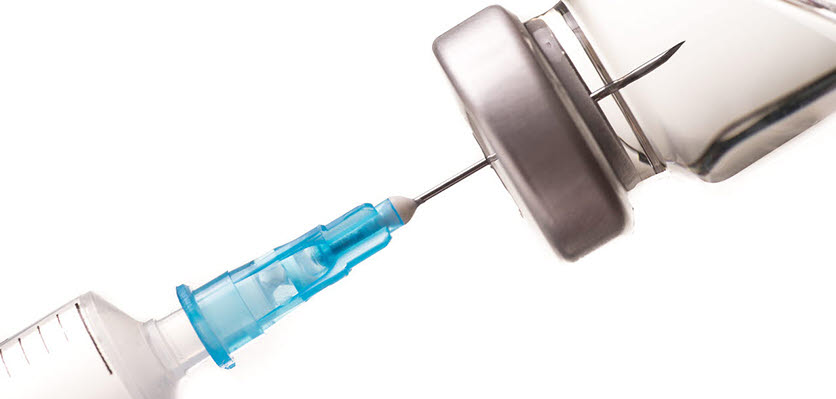
A positive mindset and good physical health can influence the immune response. Sleep, mood, nutrition, exercise, and levels of stress have all be identified as modulators of immune response. For example, studies have shown watching a funny movie, doing yoga and writing about your ‘ideal self’ are all associated with a positive immune response.1 Could mood also help improve the effectiveness of the influenza vaccine?
In a recent study, 138 participants aged between 65 and 85 years kept daily diaries documenting their physiological and behavioural states over a 6-week period.1 At 2 weeks they were given the 2014/15 influenza vaccine (containing strains H1N1, H3N2 and B) and their immune response (IgG and hemagglutination-inhibiting antibody – HIA) was measured at 4 and 16 weeks post-vaccination.
The authors found a significant relationship between positive mood over the 6-week diary keeping period and higher IgG levels. But these results only held true for the least viral strain, H1N1.
The positive mood on the day of vaccination showed a significant positive correlation between IgG levels at 4 weeks post-vaccination for strains H1N1 and B. The more positive participants were on the day of vaccination, the better their immune response 4 and 16 weeks post-vaccination.
For the most virulent strain H3N2, participants with negative moods throughout the diary period and on the day of vaccination had lower IgG levels (a lower immune response to the vaccination).
This study suggests that our psychological state, both over a longer period (6 weeks) and in the short term, can in some part drive our body’s response to vaccination.
If our mood can influence our immunological response, can we apply this same principle to animals? Although there have been studies attributing optimistic or pessimistic traits to dogs,2 we can’t for a certainty know an animal’s mood. But we have come a long way in recognising boredom, stress, anxiety and other abnormal behaviours in animals, and combating these through a combination of pharmaceutical and environmental adjustments. Environmental enrichment is one of the key practices used to help alter animals’ ‘moods’.
There is already evidence to suggest that, like a positive mindset in humans, environmental enrichment in animals can help the immune response. For instance, laboratory mice immunised with influenza and kept under environmental enrichment conditions had a significantly better response to a booster vaccine compared with mice kept under control conditions.3
The effects of an immune boost from an enriched environment can go beyond vaccination efficiency. Environmental enrichment has been shown to greatly improve the outcome of laboratory mice with B-cell lymphoma,4 increase the activity of natural killer cells and reduce anxiety and stress responses.5
Now, armed with the knowledge that a positive mood even on the day of vaccination can have potentially positive immunological outcomes in humans, and that a similar effect occurs with environmental enrichment in animals, the challenge for veterinarians is how they can use this information to help their patients.
References
- Ayling K, Fairclough L, Tighe P et al. Positive mood on the day of influenza vaccination predicts vaccine effectiveness: a prospective observational cohort study. Brain Behav Immun 2017 doi: 10.1016/j.bbi.2017.09.008 [Epub ahead of print].
- Starling MJ, Branson N, Cody C et al. Canine sense, and sensibility: tipping points and response latency variability as an optimism index in a canine judgment bias assessment. PLoS One 2014;9:e107794.
- Gurfein BT, Davidenko O, Premenko-Lanier M et al. Environmental enrichment alters splenic immune cell composition and enhances secondary influenza vaccine responses in mice. Mol Med 2014;20:179–190.
- Benaroya-Milshtein N, Apter A, Yaniv I et al. Environmental enrichment augments the efficacy of idiotype vaccination for B-cell lymphoma. J Immunother 2007;30:517–522.
- Benaroya-Milshtein N, Hollander N, Apt A et al. Environmental enrichment in mice decreases anxiety, attenuates stress responses and enhances natural killer cell activity. Eur J Neurosci 2004;20:1341–1347.
This article appeared in the November 2017 issue of the Australian Veterinary Journal
